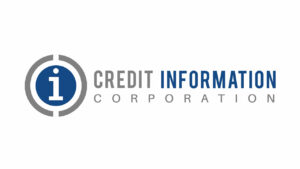CREDIT Information Corp. (CIC) is targeting to expand the number of platforms where borrowers and firms can access credit reports to assess creditworthiness.
“Our aim is to increase the channels that provide this and hopefully, you can access your credit report online,” CIC President and Chief Executive Officer Ben Joshua A. Baltazar told reporters on the sidelines of the FinScore Credit Risk Academy launch.
This initiative is part of the CIC’s Direct to Consumer Program, which seeks to allow borrowers to conveniently get their credit reports directly from lenders.
Mr. Baltazar said it is difficult to measure the creditworthiness of Filipino borrowers as most of them rely on informal lenders to get cash.
“So, we’ve been talking to the banks, online lenders, to offer this service so that if you need to check the status of your credit information, you can access it through the convenience of your phone,” he said.
Part of a borrower’s credit information is their credit score, which aims to assess whether a client is able to repay their loans on time.
Credit score provider FinScore on Wednesday launched Credit Risk Academy, which is an online course that aims to provide institutions with information on credit scoring and risks.
FinScore Chief Operations Officer Christo Georgiev said the course aims to serve at least 50 financial institutions this year to help firms assess credit risks.
“This would mean 50 financial institutions having better understanding about credit risk, both based on their internal data as well as based on alternative data, which is going to have a ripple effect around the rest of the industry,” Mr. Georgiev told reporters after the launch.
Credit Risk Academy is a seven-week course that provides an introduction to traditional and alternative credit scoring, data collection and pre-processing, and machine learning models for credit scoring. It will also discuss how alternative credit scoring could be integrated into the traditional model.
The course will be available starting June 10.
Mr. Georgiev said target participants include credit risk professionals, including traditional financial institutions, rural banks, cooperatives, and brick and mortar lenders.
It will also target C-level executives, decision makers and the broader population.
“Anyone that is interested to know how financial institutions should be evaluating credit risk based on their information will definitely benefit from the course,” he said.
Micro, small, and medium enterprises (MSME) may also assess their credit scores and risks through FinScore’s platforms, Mr. Georgiev added.
“Whenever they loan as a business, FinScore solutions can be used to score the individual behind the business. So to a very big degree, anything that is related to consumer lending within the Credit Risk Academy can be quite applicable to most of the MSMEs in the country.”
Lito M. Villanueva, chairman of Fintech Alliance.PH, said Credit Risk Academy will help democratize credit scoring.
“For lenders, this signifies informed decision making and risk mitigation, while borrowers gain increased credit accessibility and favorable terms that enhance their financial well-being,” he said at the launch.
Citing Republic Act No. 11765 or the Financial Products and Services Consumer Protection Act, CIC’s Mr. Baltazar emphasized the need to educate the public on their rights as well as information on financial products.
“Even at the level of, let’s say, the lender, bank, cooperative, or microfinance, we encourage all participants even down to the level of customer relations personnel to have what I would call an educated conversation with borrowers,” he said. — Beatriz Marie D. Cruz
